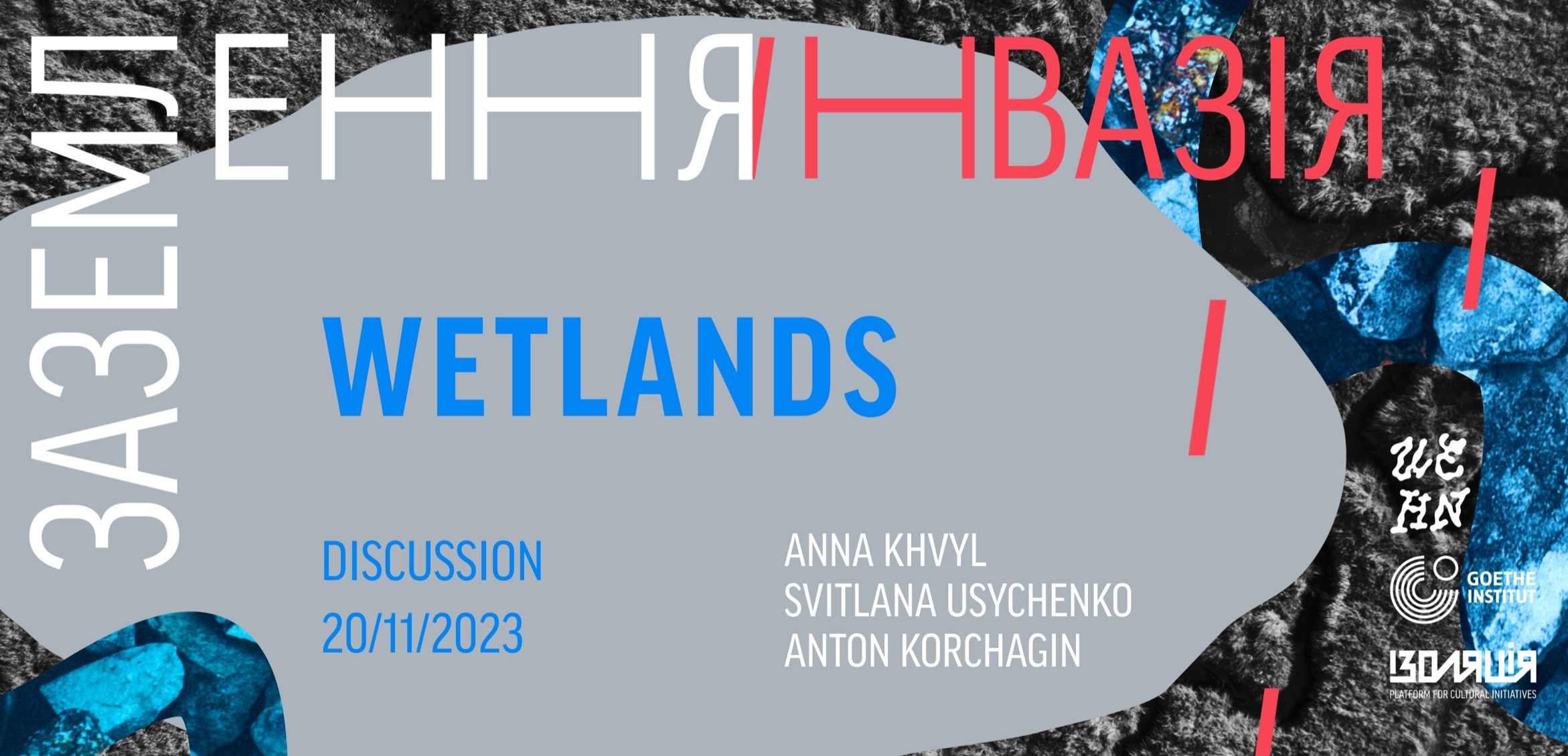Wetlands

On 20 November 2023, at 19:00, the third public presentation will take place as part of the Grounding. Invasion residency. During the event, curator and soundscape researcher Anna Khvyl, together with spatial researcher Svitlana Usychenko and urbanism and urban planning researcher Anton Korchagin, will discuss the impact of the full-scale invasion of the Russian Federation on the wetlands of Ukraine, and how artists can work with this topic.
Russia's full-scale invasion has led to the destruction of key water infrastructure facilities, including the Kakhovka Dam, causing ecocidal destruction in large parts of Ukraine. Understanding the environmental consequences of the destruction of water infrastructure is extremely important for both the affected regions, for the whole of Ukraine and the global community. Research in this area can inform environmental policy making, contribute to the development of sustainable recovery strategies, and contribute to the global dialogue on the importance of preserving critical ecological systems. At the same time, the role of artists as animators of cultural diplomacy around environmental, and thus global, challenges has the potential to bring people together to move towards ecosystem healing. The combination of scientific and artistic methods enhances the impact of the message as it affects different receptors and makes the topics voluminous and effective. During the event, we will look at projects that speak about challenges through the sounds of music.
Anna Khvyl is an electronic musician, soundscape researcher and a curator of music and educational programs. Composed music for Reserve Askania, Above the Styx, People’s Museum of Avdiivka. Creates compositions and audio installations using field records. In January 2020 Anna presented her audio performance dedicated to the acoustic space of Kyiv metro. In June 2020 in collaboration with Olesya Onikienko she created site-specific audio installation Bubny Voices for the festival Performance Crossing in Prague. In the frame of her research and educational practice Anna studies soundscapes, conducts sound walks and acoustic ecology workshops.
Svitlana Usychenko is a spatial researcher with an academic background in architecture and urbanism. Her work focuses on circular practices and strategic management of natural sites at the urban and regional levels. She has worked with the cities of Ochakiv, Beryslav, Kherson, Mykolaiv, and on the Kyiv region's restoration programme, and has also researched the Babyn Yar landscape and the Kurenivka tragedy in Kyiv.
Anton Korchagin is a researcher with an academic background in social sciences, urbanism and urban planning. Anton has been studying abroad for the past six years. He holds a BA in History, Economics and Politics from University College London (UCL). Currently, he is studying at the London School of Economics (LSE) on the Regional and Urban Planning course in the Department of Geography and Environment. Anton focuses on developing strategies for sustainable development and reconstruction of Ukraine.
Svitlana Usychenko and Anton Korchagin are working together to create an integrated vision for the Dnipro River - the Dnipro River Integrated Vision. The Dnipro River Integrated Vision is a project that includes data collection, stakeholder mapping, spatial and functional analysis, and development of development scenarios. Together with Greenpeace, the team will try to understand all aspects of the river: from economy to ecology, from security to recreation, from water quality to waste, as some of these aspects complement each other, while others contradict each other. The goal of the project is to develop a vision that will help preserve the Dnipro River for future generations. The project is being implemented by the Ro3kvit urban coalition.
Event date: 20.11.2023
The Grounding.Invasion project is funded by the Stabilisation Fund for Culture and Education 2023 of the German Federal Foreign Office and the Goethe-Institut.